The Emerging Exception
The traditional label of ‘middle power’ fails to capture India’s growing status. The country’s ability to shape the international discourse is no longer in question. India sees itself as a key player the global order.
 Courtesy: The Diplomatist
Courtesy: The Diplomatist
The traditional label of ‘middle power’ fails to capture India’s growing status. The country’s ability to shape the international discourse is no longer in question. India sees itself as a key player the global order.
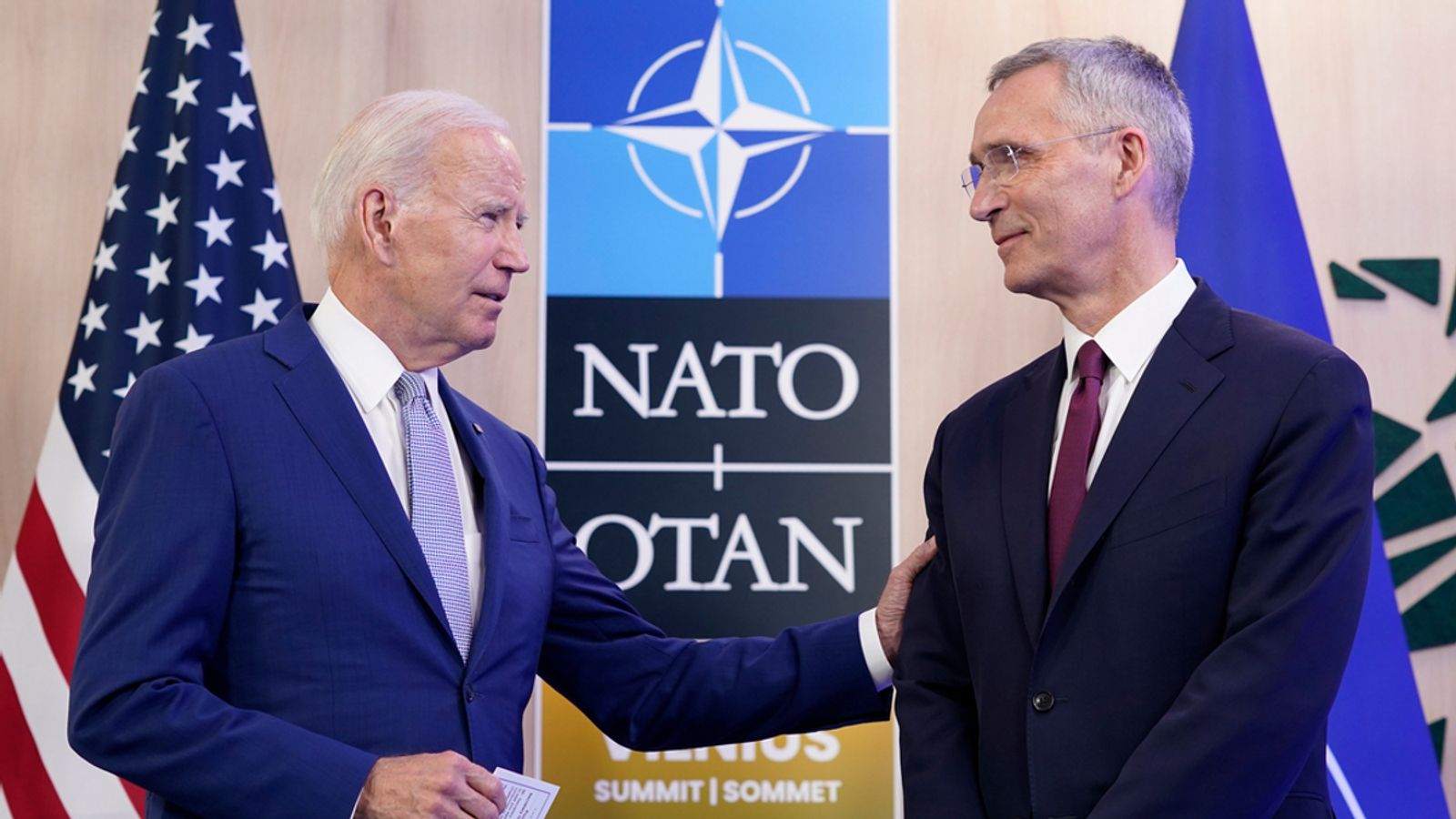 Courtesy: Bayerischer Rundfunk
Courtesy: Bayerischer Rundfunk
The North Atlantic Treaty Organisation turns 75 this year. It has exceeded its original mandate of a collective defence for Europe and is expanding rapidly. From restraining the rise of Russia, it is now seeking non-NATO allies in Asia who wish to restrain China. This requires a nimbler, more dynamic alliance. Can NATO respond to the transformation?
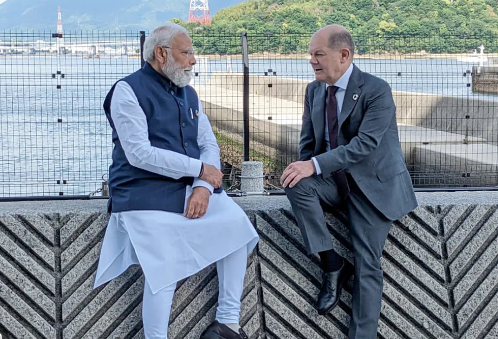 Courtesy: Getty Images
Courtesy: Getty Images
Germany is India's largest trade and economic partner in the EU, but the relationship with France is a class apart, given its strength in military aviation and willingness to be a differentiated member of the West. Must this remain so? If Germany and the EU would be more understanding of India’s democracy and its role in upholding a rules-based order, their relations would be greatly improved.
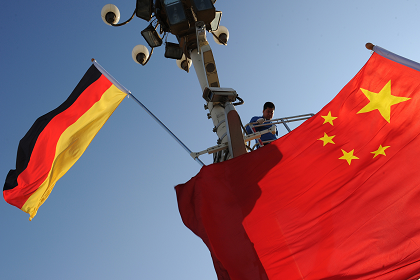 Courtesy: Deutsche Welle (DW)
Courtesy: Deutsche Welle (DW)
On July 13, the German cabinet approved its Strategy on China after nearly two years of internal discussions. The new strategy simultaneously views China as a “partner, competitor, and systemic rival”, calling for de-risking German economic dependence on China, while also expanding cooperation with other countries in the Indo-Pacific region.
![EuropeProtests-01[85] copy](https://www.gatewayhouse.in/wp-content/uploads/2022/11/EuropeProtests-0185-copy.png) Courtesy: Gateway House
Courtesy: Gateway House
Discontent over high energy prices, spiralling living costs, and anti war sentiments have gripped Europe, resulting in protests and civil unrest across the continent. With no immediate solution in sight, public resentment is likely to intensify through the coming winter months
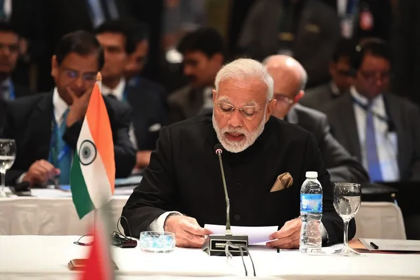 Courtesy: Narendra Modi/Facebook
Courtesy: Narendra Modi/Facebook
India will be president of the G20 in 2023. The world’s most influential economic governance body is facing an existential crisis, where the major powers have fallen out. With geopolitical currents redefining geo-economics, India needs to be ready to emerge as the chief global diplomat.
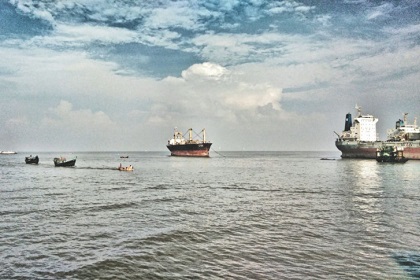 Courtesy: Hossain Tareque-wikimedia commons
Courtesy: Hossain Tareque-wikimedia commons
India has done considerable groundwork to turn into a blue economy nation through its maritime policies and active support of the Indian Ocean Rim Association. The time is right for the country to now focus on blue diplomacy, with an emphasis on maritime security and sustainable, equitable harnessing of maritime resources.
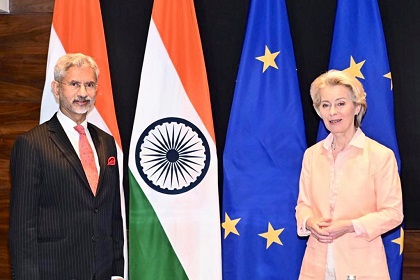 Courtesy: Twitter - Dr. S. Jaishankar
Courtesy: Twitter - Dr. S. Jaishankar
The EU has been working on an India engagement for two decades now – a strategic partnership and a free trade engagement. It is finally being realised – the outcome of the visit of European Commission President Ursula von der Leyen to Delhi this month. The upgraded, ambitious partnership Europe’s long overdue pivot to India.
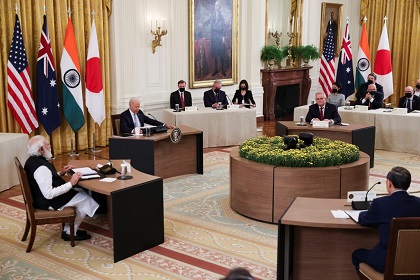 Courtesy: Atlantic Council
Courtesy: Atlantic Council
The Sino-U.S. contestation is a central tenet of the Indo-Pacific. In this power tussle, the EU strategy for the region provides a new way to engage with partners in the "Third Space" for a free, open, and inclusive Indo-Pacific.
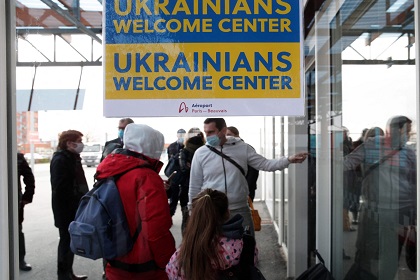 Courtesy: The Guardian
Courtesy: The Guardian
The unprecedented consensus within the EU in accepting Ukrainian refugees presents it as a global humanitarian power. But is this truly a ‘paradigm shift’ or is it a continuation of the West European Cold War strategy, based on a moral high ground narrative, of accepting people who had fled the ‘evil and undemocratic’ Soviet-bloc countries during and after World War II?